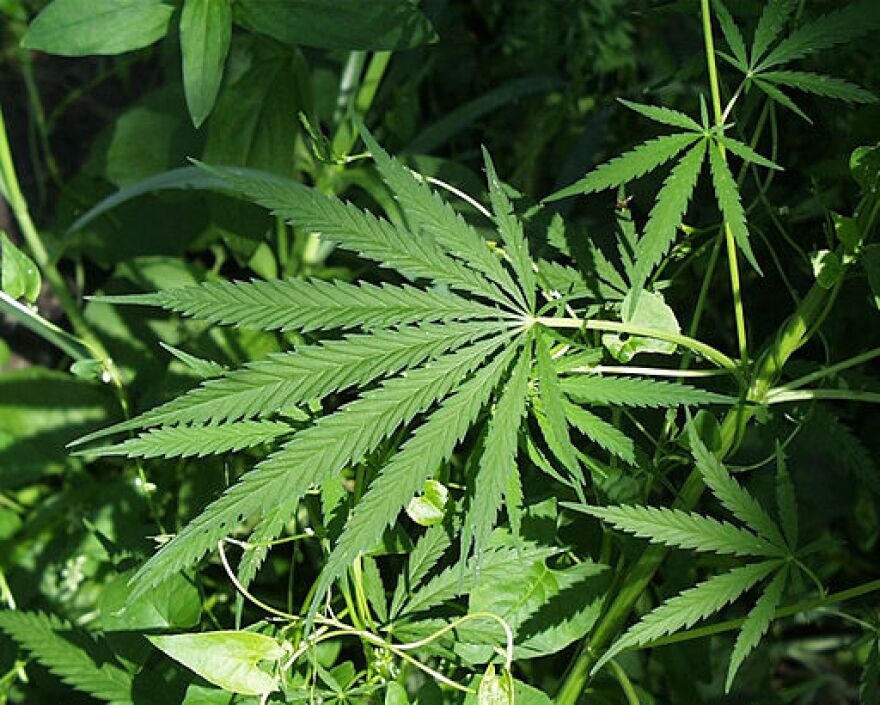On Wednesday, Canada became the largest country in the world to legalize the recreational use of marijuana. The country shares nearly 4,000-mile border with the United States, excluding Alaska, and while some of the states abutting that border have also legalized pot, the federal government has not. So authorities on both sides of the border are warning travelers that they cannot bring legal Canadian pot across the border.
The Deputy Consul General of Canada in New York was traveling on Route 15 to the border at Champlain this week for an event in Plattsburgh. Khawar Nasim found border authorities aggressively instructing travelers not to try to cross into the U.S. with their legal Canadian pot. “I drove down and there was a big sign with a marijuana leaf with an x through it. We’ve got signs up which make it very clear the transportation of cannabis it’s clearly illegal. Practically speaking taking cannabis into or out of Canada is and will continue to be illegal. This applies even in jurisdictions that have legalized or decriminalized cannabis including some U.S. states.”
Deputy Consul General Nasim says there has been an aggressive campaign to educate Canadians that at the border, cannabis remains illegal and is considered an illicit drug. He says they are working with U.S. Customs and Border officials to educate American travelers. “I do know that our CBSA (Canada Border Services Agency) will be asking questions at the border as to goods flowing into Canada because it remains a controlled substance at the border and so as a result we will work very hard with our colleagues in CBP (U.S. Customs and Border Protection) to prevent the passing of illicit drugs across that border. This is not something that we wanted to see happen.”
U.S. Customs and Border Protection Buffalo Director of Field Operations Rose Brophy says border operations have not changed. “It’s just like any other circumstance as it is right now prior to October 17th. Just say a vehicle pulls up and there’s an odor of a marijuana and the officer will be suspect to that and potentially may refer that vehicle for additional screening. There may be an occasional question if they are carrying anything with them. If they admit to having marijuana we are going to send that individual into secondary for further processing. I can’t stress enough federally it’s still illegal. Even medicinal marijuana those that have it they cannot cross the border. It’s still federally illegal. It’s still not allowed to transit the United States border.”
When travelers from Canada pass through the Champlain border, they enter Clinton County, New York. Sheriff David Favro says they are not changing the way they are operating because Canada has legalized marijuana but does expect there will be an impact. “There’s no doubt that people may go over to Canada and they’ll participate in the use of marijuana. It’ll now be in their system. So I think we may be seeing an increase of operating a motor vehicle under the influence of drugs. And that was a concern that we even had when Vermont legalized it some time ago. So we will be a little hyper-vigilant, if you will, looking for those types of things along the northern border so that hopefully if there is an increase in this we can make an apprehension early on rather than wait ‘til they penetrate deep into the county and potentially get involved in a very serious motor vehicle accident.”
Favro adds that any Canadian stopped in Clinton County who has marijuana that was purchased legally in Canada is subject to New York laws. “We do not have legalized possession of marijuana here so anybody who possesses marijuana will be violating the laws of New York state and we certainly would follow through with any relative charges.”
Questions remain about the cross-border implications of the Canadian legalization of cannibis. Canada intends to pardon everyone with convictions for possessing up to 30 grams of marijuana, which is the newly legal threshold. National Public Radio spoke with Washington State immigration attorney Len Saunders, who noted that U.S. border officials have not clarified whether Canadians who admit to legally using pot could be barred from entering the U.S.
Marijuana regulations vary across Canada as each province is setting rules under a framework established by the federal government. For example the provinces of Alberta and Quebec have set the minimum purchase age at 18, while the others have made it 19. Rules also vary in different jurisdictions about whether people can smoke pot outside.




